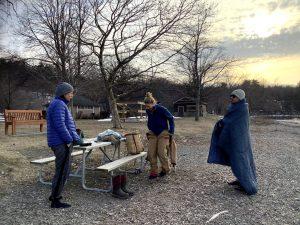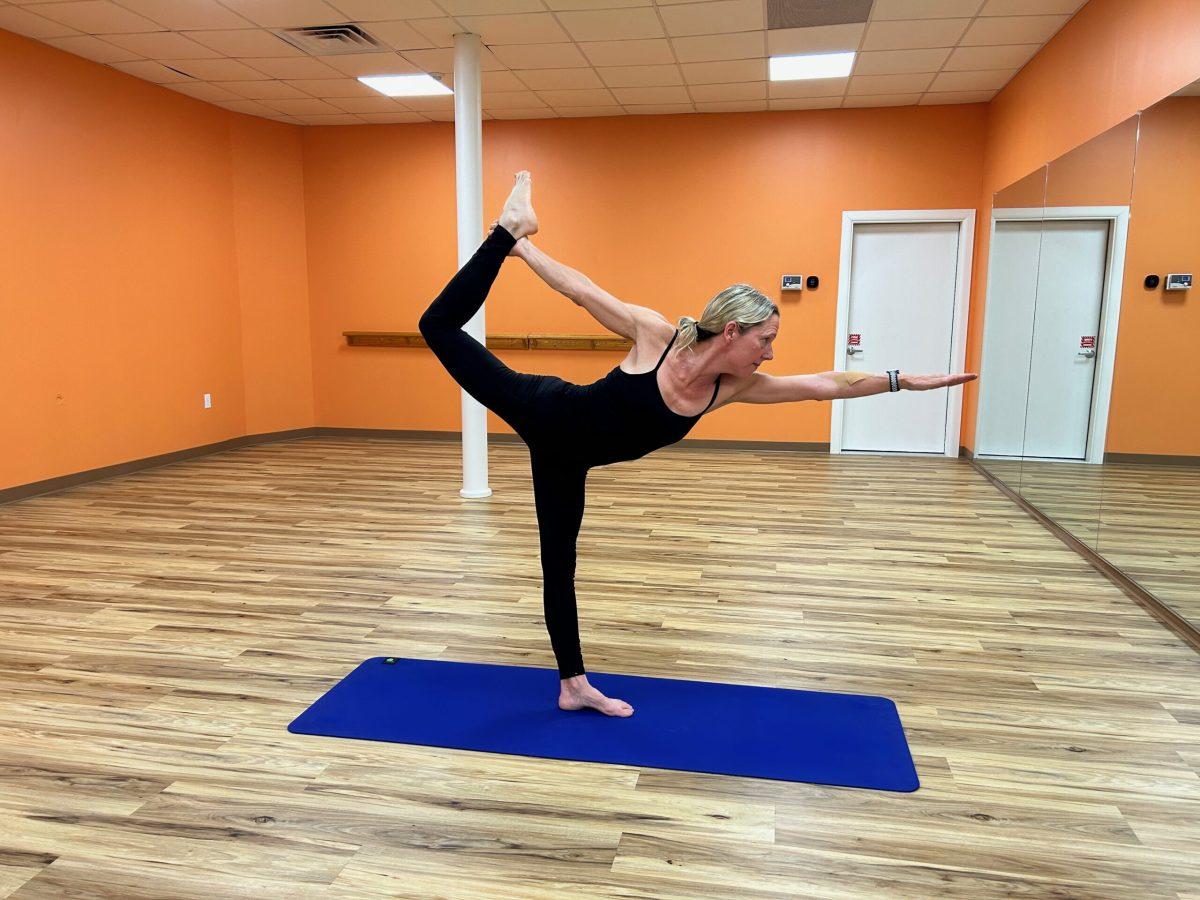Why do people go cold-water swimming?
40-year-old local Sara Worden and 42-year-old local Laura Ward began cold-water swimming in Cayuga Lake on Jan. 22.
Ward said the biggest benefit after her first swim was her improved sleeping patterns. She said cold-water swimming had a positive impact on her sleep, not only the night of but also long-term.
“I was having crazy dreams every night,” Ward said. “I feel like probably what was happening was I was sleeping so well, I was having like REM catch up…”
Ward said that the cold-water swimming is absolutely about mental health for her because it improved her mood, reduced anxiety and gave her a calmer sense all around.
What is cold-water swimming?
Cold-water swimming is also referred to as winter or ice swimming. People can cold-water swim in a lake, pool or any body of water during the winter.
There are three types of cold-water swimming:
-
Initial shock: First three minutes
-
Short-term: After three minutes
-
Long-term: After 30 minutes
It is important to note that you should not cold-water swim alone to avoid injury or death. Even experienced cold-water swimmers face the risk of death from cold water immersion.
Benefits of cold-water swimming include reduced stress and boosts in your immune system.
Connecting cold-water swimming to spirituality
Worden said that she loves being in and around water, and cold-water swimming has helped her connect with nature in the winter, helping with her mental and spiritual health.
“You know, no matter what struggles I’m dealing with in my personal life, going to the lake just washes that completely clean and just helps me connect to what I really feel is important,” Worden said.

What is spirituality?
Hierald Osorto is the Director for the Office of Religious and Spiritual Life at Ithaca College, and his job is to support students in all aspects of their lives. He is available on campus for students who are in moments of crisis and who find themselves questioning the meaning of life.
“Spirituality, it’s important to note, has to have a communal context to it because it’s about connection,” Osorto said. “If it’s absent to community or connection, it really doesn’t carry forward the kind of impact that I think spirituality is intended to have in people’s lives.”
Worden said that to her, spiritual and mental health practices are one and the same.
“Essentially, creative and spiritual, mental and self-care practices, for me, they’re doing their work if they help me connect inward to myself, so that I find a stronger sense of core and connection and then that becomes a foundation for how I interact with the world and those around me,” Worden said.

Osorto said he believes the COVID-19 pandemic has led people toward finding connections with something beyond themselves.
“I think it’s increased people’s capacity to hold space for things that may not make sense because the pandemic has required us to hold space for things that just don’t make sense,” Osorto said.
Pew Research Center reported that 28% of Americans have a stronger personal faith since the beginning of the pandemic, one aspect of spirituality that has increased.
Ward said self-care is very important to her, especially in the winter. She wanted to mentally prepare herself for the winter, and swimming in the lake helped her embrace the cold.
“And now when we swim with other people, a lot of times you’re just yelling and laughing and like, it feels so good, after being so isolated in the pandemic to have something we can safely do where you feel like you’re doing it together.”












